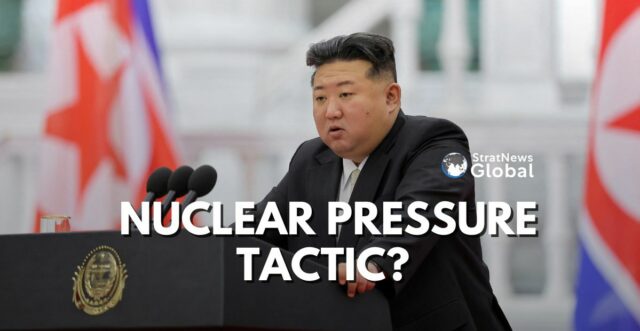North Korea has enough plutonium and uranium to produce at least a double-digit number of nuclear weapons, a South Korean lawmaker said on Thursday, citing the country’s spy agency.
North Korea’s Growing Nuclear Power
The agency also sees the prospect of North Korea potentially carrying out a seventh nuclear test after the U.S. presidential election on November 5,Lee Seong-kweun, who sits on the parliamentary intelligence committee, said.
In July, a report by the Federation of American Scientists concluded that Pyongyang may have produced enough fissile material to build up to 90 nuclear warheads, but that it has likely assembled closer to 50.
Lee said it was rare for North Korean state media to report on leader Kim Jong Un’s visit to a uranium enrichment facility, suggesting the report published earlier this month was likely aimed at sending a message to Washington ahead of the U.S. presidential election.
Lee, who was speaking to reporters after being briefed by South Korea’s National Intelligence Service, also said the report on the visit may be for domestic purposes.
“It was said that the economic situation is dire, so it could be interpreted as an act to instill confidence in residents,” Lee said.
Deterrence Against US
Pyongyang says its arsenal of nuclear weapons and ballistic missiles to carry them are necessary to counter threats from the United States and its allies.
It also often touts the weapons as a matter of national prestige and proof of the country’s power.
The North Korean Supreme People’s Assembly (SPA), the reclusive state’s rubber-stamp parliament, is set to convene a new session on Oct. 7 in Pyongyang.
During the session, the North might amend its constitution and take follow-up measures to draw new boundaries with the South, Lee said.
The last SPA meeting was held in January where leader Kim called for a constitutional amendment that would view South Korea as the “primary foe.”
(With input from Reuters)





